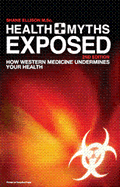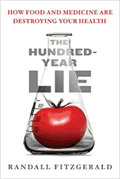Other Guest Articles:
Jury Rights! Jury
Nullification
Constitutional
Tools No
Longer Valid
INTERNATIONAL CHARTER IS DRAWING US INTO A BLACK HOLE
 By
Attorney
Scott Tips
By
Attorney
Scott Tips
June
29, 2006
NewsWithViews.com
It�s like a bad movie really. Remember that silly Disney film from 1979, The Black Hole? There was the stereotypic mad but brilliant scientist played by Maximilian Schell, surrounded by somewhat comic characters, both real and artificial. As Schell�s huge spaceship slipped past the fence-edge of the �event horizon� and began spiraling into the gravitational pull of the black hole, a battle inside the ship continued between the forces of good and those of evil. The latter were represented primarily by a menacingly large robot with evil red eyes and increasingly destructive powers. In the end, the ship was completely destroyed as it disappeared within the hellish matrix of the black hole.
A simplistic morality tale, this film reminds us not only that bad deeds can be committed in the name of science and efficiency but also that that there is a boundary, an �event horizon� such as theoretically exists around a stellar black hole, that once passed causes the inexorable descent into complete transformation or destruction.
The Trilateral Cooperation Charter
We ourselves are passing our own event horizon, even now, as you read this. Without the barest cover of legal authority, in 2004 and with little fanfare, the Food and Drug Administration (FDA) and the Federal Trade Commission (FTC) inked an agreement called the �Trilateral Cooperation Charter� with their unelected, bureaucratic counterparts in Canada and Mexico. (See Link.) The stated purpose of the Charter is to create a mechanism for the three countries� food, drug, and advertising agencies to coordinate their activities to ensure food safety and eliminate health fraud. But the import of what these bureaucrats are doing is far more ominous.
If the FDA and the FTC�s actions ever actually resulted in a net increase in food safety and a reduction in health fraud, and if they were conducted within the confines of constitutional law, then these might be laudable goals. But only the truly na�ve and those in denial or held in solitary confinement since 1965 fail to realize what Durk Pearson and Sandy Shaw publicized decades ago: the FDA�s actions have resulted in more deaths than those caused by every war in which the United States has ever fought since its birth. The numbers are well documented, and others such as Gary Null and Dr. Carolyn Dean have since confirmed and even expanded upon the documentation. Imagine, then, a three-way handshake among Abbott, Costello, and, say, Curly, and you get an idea of the health dangers involved in letting this trio loose on the continent.
Predictably enough, since the Charter�s signing, the FDA, the FTC, and their Canadian and Mexican equivalents have eagerly acted to integrate their activities. Most recently, these super bureaucrats launched nearly 730 compliance actions against companies that they claim promote �bogus weight-loss products that mislead the public, endanger the public health, and provide false hope and defraud citizens of billions of dollars.� Given the abysmal track record of all three governments in protecting public health and the fact that Canadian and Mexican laws governing food supplements are far more restrictive generally than those in the United States, there is nothing good to be gained by creating a super regulatory agency that can roam at will throughout North America.
Conceived in Illegality
One of the worst aspects of the Trilateral Cooperation Charter is the sheer lawlessness of its creation. Disguised as �enhanced security,� the Charter is nothing more than an outright illegal usurpation of power by unelected bureaucrats in three countries who banded together to make their own rules. No constitutional process of law was followed in making this raw and unbridled power grab.
In fact, someone forgot to tell the FDA and FTC that the Charter violates the Administrative Procedures Act (APA), which requires all U.S. regulatory agencies (such as the FDA and FTC) to follow certain set procedures of public and congressional notification in a strict timeline before legislative enactments (i.e., laws) may be implemented and enforced by those federal agencies. There is no evidence that the APA was followed in this instance.
Similarly, because of the record-sharing requirement among the three countries� food-and-drug and advertising agencies in order for them to implement their Charter, it is highly likely that the FDA and FTC will have also broken the law in disclosing individuals� records to a non-Federal agency, in violation of the APA (see, e.g., 5 U.S.C. Section 552a(o)(1)). Indeed, the just-mentioned, highly touted 730 compliance actions against �bogus weight-loss products� may have given those individuals and companies concerned their own causes of action against the FDA and FTC should they choose to pursue them.
In a signed Statement of Confidentiality dated June 21, 2004, the FDA tries to pull a threadbare blanket of cover over its actions here by claiming authority to disclose non-public information to non-Federal agencies pursuant to 21 C.F.R. Section 20.89 (�Communications with Foreign Government Officials�). Unfortunately for the FDA, though, Part 20 of this Title (of which Section 20.89 is part) only governs the disclosure of public information to such officials. Ooops! - I guess literacy was not ranked high on the job-requirements list when the FDA�s crack legal team was hired.
Still other critics argue that the FDA�s Charter violates the Federal Advisory Committees Act (FACA), which mandates that there is supposed to be public access to the minutes of the meetings and actions of government agencies � neither of which seems to have ever been made available in this case. Almost certainly, and without even raising basic constitutional issues, the Charter offends numerous other statutory and legal provisions not even mentioned here but which could be discovered with more legal research.
With a Hidden Agenda
Here, then, is a textbook example of government agencies making their own policy and procedure without proper or adequate congressional oversight. What law could they arguably be counting on as legal cover for their actions? Since neither the FDA nor the FTC actually tell us, we just have to guess that these two renegade agencies are acting as if the North American Cooperative Security Act has already been passed into law because they have begun implementing certain of its provisions through their Charter.
Currently biding its time in both the Senate and the House of Representatives, the North American Cooperative Security Act (S.853 and H.R.2672) is an attempt to begin the process of unifying Canada, Mexico, and the United States into a North American Union modeled after the European Union. The bills� sponsors hope to accomplish this task by focusing on common security interests and �threats� as their rationale for harmonizing the external tariffs of those three countries and for developing �a regime that employs a risk management approach to the movement of foods and food products in our countries and across our shared border, and which builds upon and harmonizes with customs processes.� (See S.853 at Section 3(c)(13)(B), which can be found at [Read].
Where have we seen those words before? In the North American Free Trade
Agreement? In the Central American Free Trade Agreement? In the European Union? At Codex Alimentarius Commission and committee meetings? The answer, of course, is yes to all. The words �harmonize,� �harmonization,� and �risk assessment� keep gathering around these trade agreements and international conclaves like flies around cow dung.
Now we have the smoking gun of the Trilateral Cooperation Charter, employing the same words, to reveal the hidden agenda of the FDA and the FTC, these supposed guardians of United States law. Of course, the real purpose of the Charter is to begin the process of harmonizing the food-and-drug regulations among the three countries. Yet while this Charter talks about �security� in order to lull us into a sense of dewy-eyed acceptance, it is really about integration and harmonization.
In the face of such sly forces, coupled with the ongoing Codex Alimentarius process, do any among us continue to doubt that the shield of the dietary-supplement industry and retailers, the Dietary Supplement Health and Education Act of 1994 (DSHEA), is targeted for extinction? When we 2% �harmonize� to the other 98%�s drug-like regime for dietary supplements will DSHEA�s freedoms remain? These are rhetorical questions, the answers to which you already well know.
Spiraling into the Black Hole
More than a bad movie, the mere existence of the Charter signifies a stellar event � our slipping past the �event horizon� marking a boundary between a political system where rule of law controls the actions of our servants and one where unelected bureaucrats and technocrats control us, our thoughts, and even what we can do with our own bodies. When bureaucrats start setting policy and enacting procedures on their own and without any oversight, then we have truly begun passing the event horizon.
|
Subscribe to the NewsWithViews Daily News Alerts! |
The only way to halt this descent is to let these renegades know who is boss by exposing their outlaw actions to the harsh light of publicity and by lighting a fire under our congressional representatives so that they will step in and do their duty. These congressmen and women must immediately demand an accounting from the FDA and FTC. To that end, please write your congressional representatives now and ask them to investigate this issue by conducting an oversight hearing. Tell them that November elections are coming up very soon and that when you step into that voting booth you will remember whether or not they acted for freedom and sovereignty.
� 2006 - Scott Tips - All Rights Reserved
Sign Up For Free E-Mail Alerts
E-Mails are used strictly for NWVs alerts, not for sale
Scott Tips received his Bachelor of Arts degree, magna cum laude, from the University of California at Los Angeles in 1976, studied at the Sorbonne (Paris I) from 1976-1977, and obtained his Juris Doctorate degree from the University of California, Berkeley School of Law (Boalt Hall) in 1980, where he was the Managing Editor of the California Law Review. A California-licensed attorney, he was admitted to the California Bar in 1980 and has specialized since 1983 in food-and-drug law and trademark law, but also engages in business litigation, general business law, and nonprofit organizations, with an international clientele.
Since 1989, Mr. Tips has been the General Counsel for the National Health Federation, the United States' oldest health-freedom organization for consumers. A legal columnist, he also writes a monthly column for Whole Foods Magazine called Legal Tips, a column he started in 1984.
Currently, Mr. Tips is occupying much of his time with health-freedom issues involving the Codex Alimentarius Commission and its and other attempts to limit individual freedom of choice in health matters.
Website: National Health Federation
E-Mail: Sct@thenhf.com
We ourselves are passing our own event horizon, even now, as you read this. Without the barest cover of legal authority, in 2004 and with little fanfare, the Food and Drug Administration (FDA) and the Federal Trade Commission (FTC) inked an agreement called the �Trilateral Cooperation Charter� with their unelected, bureaucratic counterparts in Canada and Mexico.











